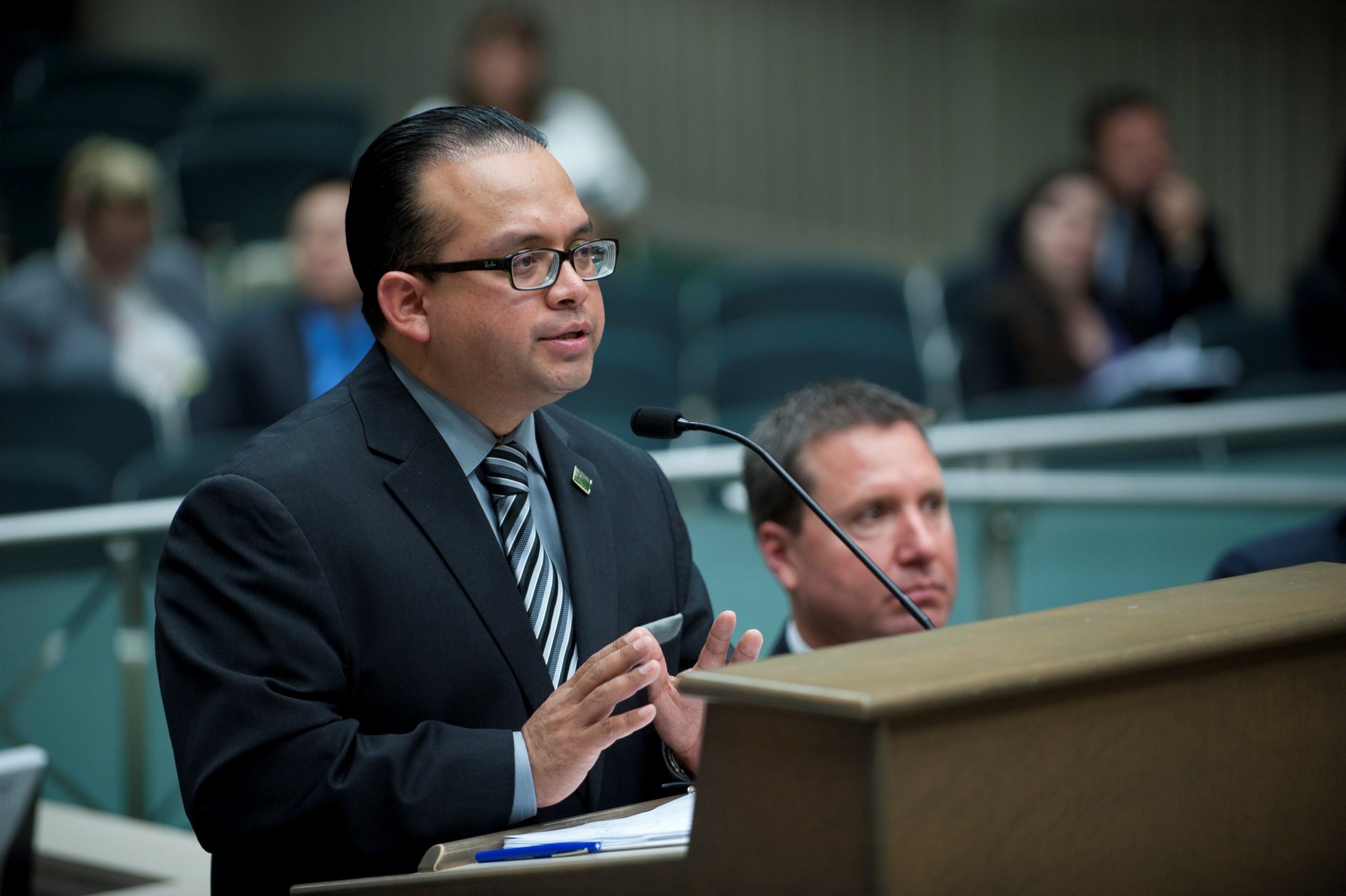San Francisco’s record of raising the minimum wage 10 years ago without crashing the local economy proves that California can do the same, said a leading labor policy reformer in the Legislature.
Watsonville Assemblyman Luis Alejo’s plan to raise the state minimum to $9.25 an hour by 2016 draws heavily on the experience of San Francisco, which in 2003 created a local minimum wage pegged to inflation. Now at $10.55 an hour, it is the highest of any major American city, and higher than the federal rate or that of any state.
Since President Obama used this year’s State of the Union address to promote his plan to raise the federal minimum wage, economists, business groups and labor advocates have been debating the economic effects of such a move, and have come to starkly different conclusions.
In San Francisco, while unemployment has risen, it has done so more slowly than across the state, where employers are allowed to pay their workers less.
But as a reporting project by the Public Press found last month, just having a law on the books does not guarantee that all employers actually pay legal wages. One survey of three other major cities found that 3.9 percent of workers were illegally paid below the local minimum wage. All things being equal that would mean roughly 39,000 of San Francisco’s 1 million workers were underpaid. In the last three years, the city’s labor standards enforcement infrastructure has won back wages for about 3,000 workers. See all stories in the project at https://sfpublicpress.org/minimumwage.
But Alejo, a Democrat representing the 30th Assembly District, said the city was nonetheless seen as a leader among California communities because it got the conversation started about guaranteeing higher pay at the low end.
“Other cities are seeing what happened in San Francisco and they’re working to raise their local wages,” Alejo said.
First increase since 2008
If it passes and Gov. Jerry Brown signs it, Assembly Bill 10 would be the first state minimum wage increase since 2008. Usually the state raises it every three to four years, Alejo noted, but since the recession started, “it’s been frozen at $8.”
At a committee hearing on the bill in late April, Alejo said his mother-in-law, who earns the minimum wage, inspired him to pursue the issue.
“Instead of advancing and being rewarded for her many years of hard work, her sacrifice and dedication, she is kept at the minimum wage level even after 20 years of hard work for the same employer,” Alejo said.
Alejo and his allies say the bill is necessary because low-wage workers are grappling with rising costs for gas and rent, while earnings remain stagnant.
If approved, AB 10 would increase minimum wage from the current $8 to $9.25 over three years, and then peg it to inflation.
This is the third time Alejo has introduced the bill — the previous two years it died in the Assembly Appropriations Committee. But Alejo said the prospects were looking better for passage in 2013 and implementation early next year.
“If it doesn’t get done at the federal level, you’re going to see state-by-state efforts,” Alejo said.
Maine, Hawaii and New York have all taken similar steps in recent months On May 8, the Minnesota Senate voted to raise the $7.25 minimum wage by 50 cents over two years, a move that would benefit about 200,000 workers.
But many business groups say raising California’s minimum wage would be a mistake. They say raising the cost of labor for retailers, restaurants, service businesses and other industries could delay an economic recovery.
Organizations opposing the bill include the California Chamber of Commerce, the California Restaurant Association, and the National Federation of Independent Business. The federation says it advocates for 350,000 small business owners, including 22,000 in California and 224 in San Francisco. The group’s executive director, John Kabateck, said the bill’s supporters have good intentions but ignore the unintended consequences for business owners, such as the pressure the policy would create to also raise wages for workers making more than minimum wage.
“There’s a perception that a small-business owner can produce extra money for minimum wage employees,” Kabateck said. “But small-business owners have to make a choice: either raise prices or pare back benefits and shifts.”
Supporters of a minimum wage hike say that low-wage workers, with more income, recycle that wealth into the economy, generating more revenue for businesses. But Kabateck said he doubted the effect was discernible. The bottom line for an owner, he said, is the ability to grow a business unencumbered. He said prosperous businesses tend to raise wages: “The more you stress their ability to hire and be successful, the less you are going to see minimum wage employees growing in a small business or finding work.”
Other opponents of the reform measure said they agreed with the need to increase workers’ income, but disagreed on the methods. California Restaurant Association spokeswoman Angelica Pappas said inflation adjustment would be impractical.
“An increase is definitely in the cards,” Pappas said “But pegging it to the consumer index doesn’t work well for the restaurant industry.” This is a particularly bad time to increase labor costs because of additional pressures facing the industry from policies such as national and state health care reform.
‘It could spell disaster’
“We would rather have this debate every few years, based on economic indicators of the time, like employment and job growth, versus putting it on an upward elevator to increase it every year,” she said. “It could spell disaster.”
But Alejo has studied up on economic arguments supporting his side. He cites research showing little adverse affects on business. One 2010 study by economists from the University of California, the University of Massachusetts and the University of North Carolina found that the 17 states, plus Washington, D.C., that have minimum wages higher than the federal, did not experience slower job growth than would otherwise be expected.
UC Berkeley economist Michael Reich found that increasing the minimum wage actually helped employers hire people (See a discussion of the issue in the spring edition of the Public Press — https://sfpublicpress.org/news/2013-04/economists-say-city-minimum-wage-means-big-boost-for-working-class).
Miranda Dietz, a research data analyst who works with Reich said that minimum wages do not reduce employment. “They aid employers with recruitment and retention of their workforce,” Dietz said, “so minimum wages kill job vacancies, not jobs.”
Alejo’s previous attempts to raise the minimum wage failed to pass the Assembly’s Appropriations Committee. If the latest effort survives hearings later this month, it will have to slog through votes in the full Assembly and the Senate’s Labor Committee.
Alejo acknowledges the long path the bill must take, but he remains optimistic that he can earn low-wage workers a small boost next January to $8.25. It would rise to $8.75 in 2015 and to $9.25 in 2016, and would be adjusted to inflation every year after that.
Read the entire report from the spring 2013 print edition of the Public Press at sfpublicpress.org/minimumwage.










